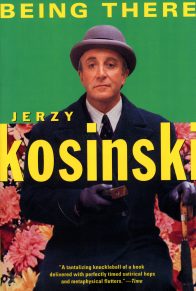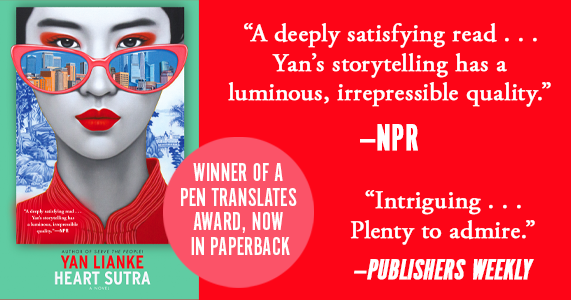Looking down at the river shimmering in the bright sun, Jonathan Whalen leaned against the steel balustrade at the end of the street. The skyline of New York that he remembered did not seem altered by the recent skyscrapers. Far across the river, jets took off from La Guardia, leaving behind them thin lines of exhaust. On the near side, a helicopter lifted into the sky, hovered over the water, then veered off, casting its shadow on the river. Another helicopter descended and touched down, quivering to a stop on the landing pad.
Whalen walked toward the heliport, where a freshly painted copter sat on a platform. A large sign proclaimed: EXECUTIVE HELIWAYS, INC. SEE MANHATTAN FROM THE AIR. LOW-RATE EXCURSIONS. Whalen went into the ticket office, and the clerk looked him up and down.
“I’d like to see Manhattan,” said Whalen.
“Why don’t you take a subway?” said the clerk, focusing on Whalen’s old shirt, worn pants, and scuffed boots.
The clerk leaned across the counter. “Look, this is Executive Heliways, not freeload ways. Understand?”
“I do,” said Whalen. He held out several crisp bills, the exact amount listed on the wall board as the price for the half-hour flight. “Will this do?”
Shuffling uneasily, the clerk stared at the money. “I’ll check with the pilot,” he mumbled as he disappeared into the back room, and a moment later he returned, accompanied by a man in a gray uniform.
“This is the fella who wants to take the ride,” said the clerk.
The pilot glanced at Whalen. “Look, son–”
“I’m not your son,” said Whalen, and he pushed the money toward the clerk.
The pilot hesitated. “I’m going to have to sort of frisk you before takeoff.”
“You frisk everyone who flies with you?”
“Well–at my discretion.”
“Then use it,” said Whalen.
“It’s easier if you put your hands up,” said the pilot, approaching him slowly, and as Whalen complied, the man rapidly patted his shirt and pants. “Take off your boots,” he directed. Again Whalen obeyed, then put them back on after the inspection. Reassured, the pilot snapped, “Let’s board,” and the two of them marched toward the landing platform.
Inside the helicopter the pilot turned to Whalen. “We’ll fly all over the place,” he said; “over the Harlem black, the Gramercy Park white, and the Chinatown yellow; over the Bowery poor and the Park Avenue rich; the East Side, the West Side, midtown, downtown.” He pulled the throttle. The machine coughed, vibrated, and arched off the ground.
“A helicopter makes me feel free,” said Whalen as he glanced at the tourists watching them through binoculars from the roof of the Empire State Building. ‘still, each time I fly in one, I feel like a toy, guided by remote control by someone on the ground.”
They passed over the town houses of Greenwich Village. “Now I’ll show you where all the big money is,” said the pilot, spinning the helicopter toward the Stock Exchange.
“Could you slow down over that building for a second?” asked Whalen. He pointed to an archaic skyscraper on Wall Street. ‘my father’s office was on the top floor there. When I visited him as a kid, I used to stand there and look down at the other buildings. But it’s a strange feeling to be above it, looking down.”
The pilot glanced quizzically at Whalen but said nothing as he guided the helicopter around the building and, flying over Battery Park, went all the way to the Statue of Liberty. There, trailing the wake of an oil tanker, he turned again toward Manhattan. “Okay, son,” he announced, “we’re going back home now.”
At the heliport a police car stood next to the landing pad, and as Whalen stepped out of the machine a policeman moved toward him. The Heliways clerk stood nearby.
“Put your hands up!” ordered the policeman. Whalen obeyed. The policeman frisked him, found Whalen’s wallet, and counted the money in it. “Look at this,” he muttered. “This guy’s carrying over two grand.” He turned back to Whalen. “Where’d the money come from?”
“A bank,” Whalen answered. “One we just flew over.”
The policeman stared at him. “What are you talking about?”
“I got this money from my bank,” answered Whalen.
“For what?”
“For killing–”
The policeman stiffened. “Killing what?”
“Time,” said Whalen.
The policeman was not amused. “Where do you live?” he asked.
“Nowhere yet. I’ve just arrived.”
“Where from?”
“Abroad.”
“Got any identification?”
“Only money. Isn’t that enough? There’s no law that says I have to carry identification.”
“Tell me more about the law and you’ll sleep in jail tonight. Where is your family?”
“Dead.”
The policeman nodded in disbelief. “You get one more chance,” he threatened. “Where’d you get this money?”
Whalen shrugged. “From my bank, the National Midland, Wall Street branch.” He waited. “If you don’t believe me, call the bank’s president, Mr. George Burleigh. Tell him I’m back in town, and he will tell you where my money came from. My name is Jonathan James Whalen.”
The officer went to the office to make the call. When he returned, he handed Whalen the wallet. “I’m sorry about this, Mr. Whalen.” He laughed uneasily. “You know, there are a lot of. . .” He stammered. “A lot of suspicious characters around.” He paused. “Can I give you a lift somewhere?”
“I have no place to go to right now,” said Whalen, and he turned and walked into the heliport office, where the pilot was lounging in a metal chair and drinking a cup of coffee. “How many helicopters, would you guess, flew over New York at the same time we did?” Whalen asked him.
“Five or so,” answered the pilot.
“And how many people did they carry?”
“Maybe fifteen.”
“Fifteen people looking down at twelve million,” said Whalen. “That’s quite a ratio.”
The pilot leaned forward. “Pardon my asking, but what do you do for a living? There must be a secret–”
“There is,” answered Whalen. ‘money is the secret. The bank we flew over keeps it in trust for me until I reach a certain age.”
“No kidding,” said the pilot. “And when’s that?”
“Tomorrow,” answered Whalen.
” ” ”
It was evening. Whalen walked through the bustling streets of the East Side, and wherever he looked he saw young men and women, sitting or standing in sidewalk caf’s and bars; leaning against their motorcycles, scooters, or cars; talking, laughing, embracing. They all seemed to be at ease with themselves and each other. Eventually he would have to make his way in their midst; he would meet some of them, judge and be judged by them, befriend them and be befriended in return.
He knew he must make a decision. Would he place himself among such people as their equal, and by doing so, remain slightly ashamed of everything about himself that would set him apart? Or would he enter their ranks as one whose position was of a different longitude and latitude from theirs–as a person who was his own event?
A girl walked toward him, her skirt swaying, revealing the shape of her long, tanned legs. Aroused, looking at her, he became aware of the space that his desire had opened between her and him, a space that a simple act of his will could not span. Had she noticed him, smiled at him, he would have found the courage to follow her, even to arrange a meeting. But she did not return his look. Still, he thought, perhaps he should follow her. But he didn’t.
He walked into a restaurant. Mirrors reflecting the light from a crystal chandelier shot glittering prisms into even the darkest corners of the crowded room. Alone, he thought of Karen.
” ” ”
I’ve bought the smallest tape recorder available. It looks exactly like a match box, and it can record anything from a one-minute memo to a four-hour conversation. It operates on its own rechargeable battery, is activated by voice or hand, and contains an invisible condenser microphone that self-adjusts for voice distances even in a large conference room. I keep it in my pocket.
One day I might even want to leave it behind in Karen’s apartment, and then claiming I left it by accident, pick it up the following day.
An American friend of mine once shared his apartment with his Argentinean girl friend for four months without letting her know that he was fluent in Spanish. By means of a miniature tape recorder that he concealed in his pocket when they were together or hid in the apartment when he went out, he would record her conversations, whether on the phone or face to face with her Spanish-speaking friends, many of whom did not speak English. In these conversations, his girl friend often talked about how much she loved him and what an unusually good and considerate man he was. But once in a while, on the phone with an intimate girl friend in Buenos Aires, she would candidly describe his lovemaking and bedside manners and speculate about his sexual preoccupations, fantasies, and fetishes, some of which she found peculiar and not to her taste. After listening to many tapes of conversations recorded in his absence, he became convinced that she was in love with him and felt reassured that there was no other man in her life. Nevertheless, unable to erase from his memory some of the poignant remarks she made about him, he began to feel embarrassment when making love to her and eventually became not only self-conscious but impotent. One night while caressing her, to end his misery he whispered to her in perfect Spanish how sorry he was that he had deceived her, and then he proceeded to tell her about the tape recorder. Shocked, the girl began to cry, and the next day told him that she felt betrayed. She said she could never forget that she had been spied on for months–and this by him, the only man she had ever loved and trusted. Soon after that, refusing to have anything more to do with him, she left for Buenos Aires.
” ” ”
“Look, man, I’m just trying to be friendly, that’s all. Just now, I was standing behind you in line at the bank, right? And I saw you writing “five thousand dollars’–not on a regular check or a bank form, but on a square little piece of paper–plain paper, nothing on it, right? Then you just signed this paper “J. J. Whalen” –wasn’t that your name? Whalen?–and you gave it to the cashier and he took that shitty scrap from you like it was pure gold. Then he comes back, all smiles, and just like that counts you out five grand all in that crispy cash! Now, man, I tell you, I been around banks, but I never saw a number like that: you sure got yourself some sonofabitch cash contact in that bank! Five grand for a shitty paper with “J. J. Whalen” on it! Who are you, an underground numbers-game king?
“But listen, Whalen, let me clue you in on a truth about these sonofabitch bank tellers so they won’t try to hit you with it one day. You know what the motherfuckers got going on the side, don’t you? Some of them–like that fat black bitch who just gave you a come-on look–they take down the name and address of every old lady and widower, every faggy loner or rich bastard who comes in with a fat account. Then they sell the creep’s name to certain guys who want to know where those kind of rich numbers live. Some of these guys pay up to a hundred bills for one good name and address!
“And believe me, Whalen, these guys are good at making their information pay off nicely. One day, all dressed up as insurance men, they’ll go see a sickly old lady, and they’ll pull her by her ears until she gives them all that cash she keeps hidden at home, and all those gold crosses and old diamond rings. And there is no way for her or anyone else to know why these guys went after her.
“And d”you know about those dudes who have a nice thing going for them in the ‘soul-saving” business? D”you know that if you want to split forever from that chick of yours who’s got too sticky for your long hot finger, all you do is call a certain number, and they can save you a big hassle? You call that number and you tell the dude who answers that you’ve got a soul to be saved and he’ll tell you where and when you should deliver the cunt. Then you tell your chick that you and her are goin” to look for a new place for the two of you. The minute you show up at that place and close the door, four motherfucking dudes will come in–and they’re big, really big guys. They’ll push you away like they’re really mad, and they’ll start playin” with your broad, kissin”, nipple pickin”, jerkin” off, and so on until you begin to fight them, just to show the chick you are all for her. The dudes will pick you up and take you out of there, but before you split they’ll lay an honest-to-God hundred or so bucks on you for deliverin” that soul to them.
“After you split, the dudes will be pretty rough on your chick, particularly if she’s tightassed about spreading wide for guys she wasn’t properly introduced to, or if she doesn’t dig sucking big mamas she didn’t go to Sunday school with. Believe me, Whalen, she’ll be roughed up like a soul in hell, front and back, top and bottom, until she learns how much true love is worth in this apple pie of a city. After that, a nice big dude will pick her up in his Caddy. If the cunt is nice, and if she walks the streets like her new daddy tells her and brings him all the stash that true love can make, he’ll take good care of her. Got it?
“Listen, Whalen, what I’m telling you, man, is that–with your sonofabitch contact in this bank and mine with these dudes–you and I can score big.
“Now wait a minute. What’s that gismo you keep on playing with in your pocket? Is that a cassette, man? Are you working for the cops, Whalen? I ain’t saying anything more–and words ain’t no proof, you creep. Man, I’m splittin” right now.”
” ” ”
A recent nationwide poll claims that one-fourth of this country’s adults believe that the position of the stars influences their lives. These people regularly read and consult daily astrology columns in newspapers, and they find purpose and meaning in the interpretation of their astrological sign. This is what the Astro Bio-Rhythm computer in the lobby of the American Museum of Natural History printed out for me after I fed a dollar into it, along with the exact moment of my birth.
Your fixed sign is Saturn. Saturn indicates feelings of separation and estrangement. You see humor where others don’t. Having to leave familiar surroundings may well be a part of your destiny. Saturn also makes you hard on yourself. You are impulsive and have difficulty sticking to things. You must acquire patience and stability. You must protect your mental, physical, and financial resources. You have great gifts: do not squander them.
So much for the computer version of my fate.
And here is what I know: I can’t decide whether self-awareness is a source of energy or of impotence. My real self is antisocial–a lunatic chained in a basement, grunting and pounding on the floor while the rest of my family, the respectable ones, sit upstairs ignoring the tumult. I don’t know what to do about my lunatic–destroy him, keep him locked in the cellar, or set him free.
Since I left home I have been a vagrant, an outcast, living always in the present. Often I have regretted I was not brought up in the Catholic faith. I have yearned to confess, to have my broken inner autonomy cemented by means of union with that two-thousand-year-old institution of moral authority. But I have also realized that, however mystical, no church and no sacrament can protect me against the ultimate threat to my vital existence: losing the sense of my own being. Now, back at home, therefore, I must confront my past. Karen told me that she envied other people their pasts; she did not say she envied me mine.
If focused on closely, any moment of my life–even the one that has just ended–telescopes all that I need to know about myself, contains all my chances for the present and my prospects for the future. My past is the only firmament worth knowing, and I am its sole star. It is as haunting and mysterious as the sky overhead, and as impossible to discard.
” ” ”
On the crossroads outside Bangkok, during my playful moments I used to wait for the villagers to drive their carts home from the market.
The drivers, who smoked opium all day, trusted their donkeys to find the way home, so by the time the carts reached the place where I waited, the men were asleep. As each cart approached, I would leap out of my car and patiently turn the donkey around without waking his driver; then I would watch the donkey trot away with the cart. One day I turned twenty carts around. Was I an instrument of each driver’s fate, or were these drivers instruments of mine?
” ” ”
Some opium smokers rely only on raw opium; some mix it with dross; some, like me, have enjoyed both. Opium is unlike certain other drugs or narcotics in that one does not need to keep on increasing its strength or dosage in order to enjoy it. Whether with dross or without, opium gave me a sense of wisdom and balance, a spiritual tranquillity I had not known before I began to smoke and have not experienced since I’ve been disintoxicated.
Although smoking opium provides you with a sense that things are safe and predictable, the stuff itself seems crazy; it won’t light up near the sea, it loses strength in the snow, it drips when the air is humid, and its potency changes from day to day. Opium does other weird things. In a man, it slows his sex drive but speeds up his heartbeat. In a woman, it slows her blood but speeds up her lovemaking. With time no longer your jailer, each pipe frees you: you inhabit a space where waterfalls turn into ice, ice turns into stone, stone turns into sound, sound turns into color, color becomes white, and white becomes water.
Maybe because opium is so unpredictable–only one pipe in ten producing the effect one desires–you never feel like an addict when you reach for the pipe, for the stuff might again refuse to please you. And when, like me, you don’t smoke it anymore, you are not a past addict; you have merely abandoned opium.
I met Barbara, a Princeton dropout, in Rangoon. I introduced her to opium and she introduced me to several American and British expatriates, among them a Mrs. Llewellyn, who had remained in Rangoon alone after her husband, a British civil servant, had died there. One day Mrs. Llewellyn invited Barbara and me to lunch at her house, which stood sheltered by tall trees on a hill overlooking the Gulf of Martaban.
During lunch Barbara complained to Mrs. Llewellyn about the hotel we lived in, and when the old lady suggested that we stay in her house while she went to visit an ailing friend in another town for two or three days, we gladly accepted her invitation. Once a week a Burmese servant and his helper would come to clean the house, the garden, and the swimming pool. Otherwise, we would be alone.
I helped Mrs. Llewellyn ready her car for the trip, and she left the following day. From her terrace Barbara and I watched the ships in the harbor and the yachts criss-crossing the bay.
In bed that night, Barbara said, “It would be nice to own this house. We could live here, smoke our pipes, and not be bothered by anyone.”
“I could easily get rid of Mrs. Llewellyn,” I said.
“What do you mean?”
I shrugged. “Oh, I don’t know. She’s old and alone. No relatives, hardly any friends. And since she travels once in a while, no one would notice if she failed to come back.”
Barbara laughed. ‘don’t be silly. This isn’t a Hollywood horror movie. Go to sleep.”
Later I tried to make love to her, but even though she had smoked a pipe shortly before we had gone to bed, she didn’t respond.
The day Mrs. Llewellyn was expected back we waited up past midnight, but when she hadn’t arrived by one we went to bed. An hour later we were awakened by the sound of a car. I told Barbara to go back to sleep; that I would help the old lady with her luggage.
When I awoke in the morning, Barbara was already up and dressed. “Where is Mrs. Llewellyn?” she asked.
“I don’t know. She’s not back yet.”
“But we heard her come home last night, and you said you were going to help her. Now she’s not in her room, and her car isn’t here.”
“I told you she hasn’t come back,” I insisted. “We heard someone else’s car, that’s all.”
She became angry. ‘stop playing games. Where is Mrs. Llewellyn?”
“I suppose she’s somewhere. Everybody is. If I were you,” I said deliberately, “I wouldn’t bother about her anymore. No one will notice if she doesn’t come back. The place is ours now.”
Barbara stormed out of the house, slamming the front door. Through the bedroom window I watched her examining the unpaved driveway for car tracks and searching the adjoining garden. She came back, visibly upset, asking, “Where is she? What did you do to her, Jonathan?”
‘stop it. Let’s go swimming,” I said calmly.
Barbara put her hands on my shoulders. “What have you done to her?” she asked.
“Please, forget it,” I said, pulling her toward me and kissing the inside of her ear.
She pushed me gently toward the bed.
“How did you–? Was it. . . was it quick?” she whispered. “What if they find the body?”
“Stop talking about her. This isn’t a Hollywood horror movie.”
“If I’d known you meant it, I never would have–”
“Let’s go swimming,” I said.
When we came out of the pool, naked, and I pointed to the cabana, Barbara followed me inside. Impatient, she threw some pool towels on the floor and lay down on them, her legs spread apart, her arms held up to me. I went down on my knees, my hands rubbing her thighs, searching her flesh. She was in a frenzy, trembling and shaking, her movements quickening as, urging me to take her, she arched off the floor, then fell back, then arched again.
“Don’t–don’t be gentle,” she moaned. “Please be rough, Jonathan.” For the first time in our lovemaking she was abandoned, no longer suppressing the desire that opium had heightened, probing my body, eager to feel me hardened. Thrashing under me, she yanked my hair, reached for my groin, tightened her grip on my flesh, bit my shoulder. Her orgasms came one after another, and she went limp and calmed down only after I reached mine.
No longer expecting to be interrupted by the return of Mrs. Llewellyn, we became comfortable hermits, for whom smoking opium was not a routine of slavery but a ritual corresponding to the rhythm of our life.
We smoked two pipes in the morning, one at midday, two in the afternoon, one in the early evening, and two or three at night, sleeping, eating, and playing with each other in between. We were attended to by two sons of my opium dealer, and these boys prepared our pipes, lit the lamps, and cooked our food. Our life had become smooth, effortless, and physically salutary.
Aroused by the opium, Barbara often provoked me. She would reach for my testicles and squeeze them until I smacked her. Then she would hit me back, and screaming abuses, she would stand up against the wall, smudging obscene words on her body in bright red lipstick. With no masking of what she wanted, she would encourage me to attack her. I would pull her down by her legs, and when she fumbled over me, we would struggle, each one trying to overcome the other. I left her alone only when, spent and exhausted, she could no longer move or moan. In the morning she would show me her bruises and insist that–to make up for the pain I had caused her–I tell her how I had killed and disposed of Mrs. Llewellyn.
In her opium haze, she kept recalling something I had once told her. I had visited a bordello on the outskirts of the city. There, as I sat among pubescent girls made up to look like young women and young women dressed to resemble pubescent girls, the madam noticed me glancing at an old woman, her face swollen and twisted, her disfigured body ravaged by opium addiction. ‘do you fancy her, mister?” asked the madam, pointing at the woman. “I’m sorry for her,” I said; “at one time she must have been as beautiful and fresh as these little girls.” ‘she was,” agreed the madam. ‘she lost her looks, but believe me, in bed she is still as hot as they are. Tell me, young man,” she whispered, taking me aside, her perfumed breath warming my neck, “have you ever fucked a whore to death?” I laughed at her metaphor. ‘don’t laugh. You can do it here!” she said. “For two hundred additional American dollars, you can do anything you want with her.” She pointed again at the old woman. “Anything at all.” She paused. ‘don’t you say in English, “till death do us part”? If you like her, you can part with her with your part,” she said, pinching my loins. “At least she won’t rot away, and she’ll die like a human being–with enough money for a decent burial. I have a quiet cellar, ideal for such parting.”
Now, thinking of the old woman, Barbara wanted to know whether I had taken Mrs. Llewellyn to that cellar. “Did you kill here there?” she asked. “Did you fuck her to death? Did you pay the madam to get rid of her body?”
Barbara began to suffer from insomnia and to smoke even more pipes than I. The pipe was her life, abolishing the difference between minutes and hours, between morning and evening. She lived surrounded by an invisible fence, and she wanted me inside it only to make love to her. Even in lovemaking she was eager to obliterate the confines of strict sex roles; she wanted to be both bait and baited. She liked to submit, to have her will expanded by surrendering to the will of her lover. Then she would change roles. Anchored behind me, she would tie my hands with one of her stockings, and holding me facedown she would excite me agonizingly slowly by letting her lips and tongue brush the base of my spine, halting just before my orgasm. Then, when I pleaded with her to continue, she would force me to lick her. When I slowed down or bit her, she would straddle my head. My face dampened by her groin, her nipples prickly upon my belly, she would run her hands down the length of my body, her fingers rough and unforgiving, yanking, rubbing, and jerking my flesh until, against my will, breathless in her own excitement, she brought me to an orgasm.
Opium and sex were our loves, but opium was the more possessive. It insisted on regimen, and on an even rhythm of activity and sleep, on hours set aside for the pleasure of food and the peace of the pipe. Our lovemaking steadily upset this required regimen and rhythm. We were betraying the opium, and the opium would punish us for our betrayal. It was time to quit smoking.
One morning, hearing a car pull into the driveway, we got up from the bed and dragged ourselves to the window. There was Mrs. Llewellyn, struggling to drag her large suitcase through the front door. Barbara tried to suppress her anger. “Why didn’t you tell me?” she cried.
“Tell you what?” I asked. “That I gave the old lady money for a vacation in England?”
” ” ”
Back in the hotel, I was cold and sweaty. My heart fluttered and my pulse slowed. My body itched. I trembled. I oscillated between diarrhea and vomiting. Barbara’s face was flushed, her pupils dilated; moistness blanketed her body. Her touch left my skin cold and damp. When we kissed, her tongue seemed swollen. Like me, she was ill. I was confused, not organized enough to summon help at first.
A few days later I called the hospital and asked for the ambulance to take us there.
” ” ”
After I was disintoxicated and released from the hospital, Barbara remained there, steadily receding under a sheet that was drawn tight across her shoulders, looking as though her head were separated from her body.
Her face was puffed and her body shrunken; her thin neck seemed unable to support her head. Her eyelids closed slowly, as if sticking to her eyeballs.
She murmured that she wanted to die, to take a needle and plunge it into her heart or, failing that, to jump off a tall building.
Even though I had provided and paid for the most competent doctors, Barbara died a month later from complications caused by her addiction. No members of her family in Nebraska could afford to come to her funeral, and at their request her body was to be cremated, her ashes sent home. A minister officiated at the brief ceremony, which was attended by one of Barbara’s doctors, two nurses, Mrs. Llewellyn and her servants, and a minor official from the American consulate, who, knowing who I was, kept eyeing me with obvious interest.
The minister, an oldish, grayish American whose manner reminded me of my father’s, spoke eloquently about those who, making their beds in hell, unable to rejoice or to seek salvation through their own spirituality, are in danger of being forever lost.
The essence of human life, he said, is as invisible as the meaning of a sermon or a book, or a notion of right and wrong, of justice and injustice, of love and hate. This essence cannot be depicted; it can only be hinted at and expressed through actions and objects, things that can be seen or handled.
Our consciousness, the minister said, is our sole spiritual compass; time and space merely provide a framework for the unfolding of our personal life–its suffering, sacrifice, hope, joy, and despair, which are our only reality. Only by accepting our spirituality as invisible, and the world as its expression, are we able to acknowledge the overwhelming presence of God, Himself an invisible power behind the visible universe–a power for whom space and time are, as they are for each one of us, forms of spiritual expression.
As I was listening to the minister, a single thought took possession of me: I’ve allowed myself to betray and mock life, to play hide-and-seek with the very essence of myself. For reasons obscure to me, I have failed to extract from my Protestant heritage its only prophetic and creative truths: that for as long as I live and in every situation, I must protest against the sin of distortion and the limitations of human existence, including the distortion and limitations of my own life and nature; that such protest contains both the hope of my spiritual rebirth and moral resurrection and the peril of uncertainty and personal confusion. Until now I’ve betrayed my sacred calling.
And I realized that in order to respond to this calling, I would have to begin with myself, with my own life. I would have to return home.
” ” ”
Whenever I am with Karen in a public place, among strangers, I feel an urge to touch her, to confirm my hold over her. At the same time, detached from the reality of the moment, I envision Karen and myself making love in the most outlandish manner, defying the taboos of society as well as the rituals we both still follow. Only Karen triggers in me a state in which I watch my own being as if from a distance.
Excerpt from Devil Tree
©1973, 1981 by Jerzy Kosinski















